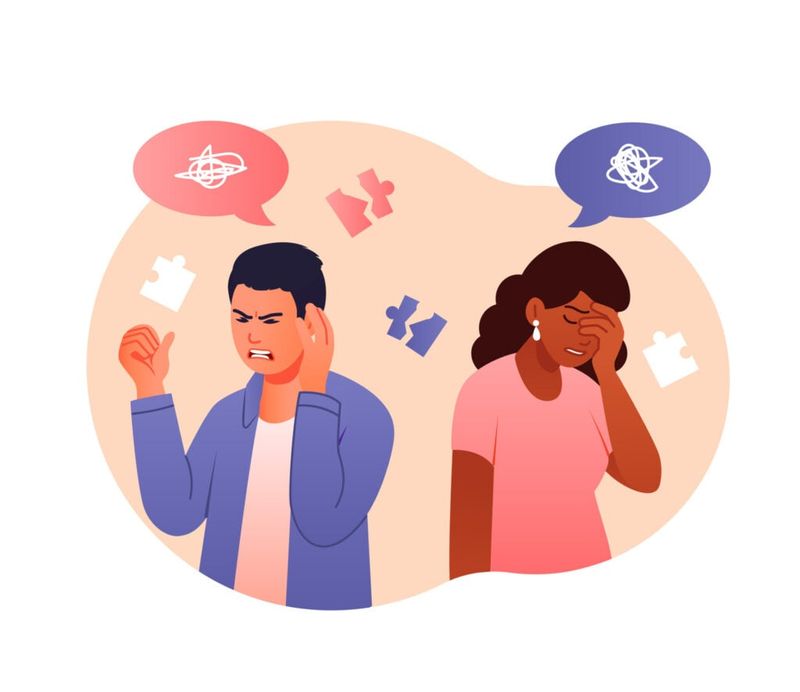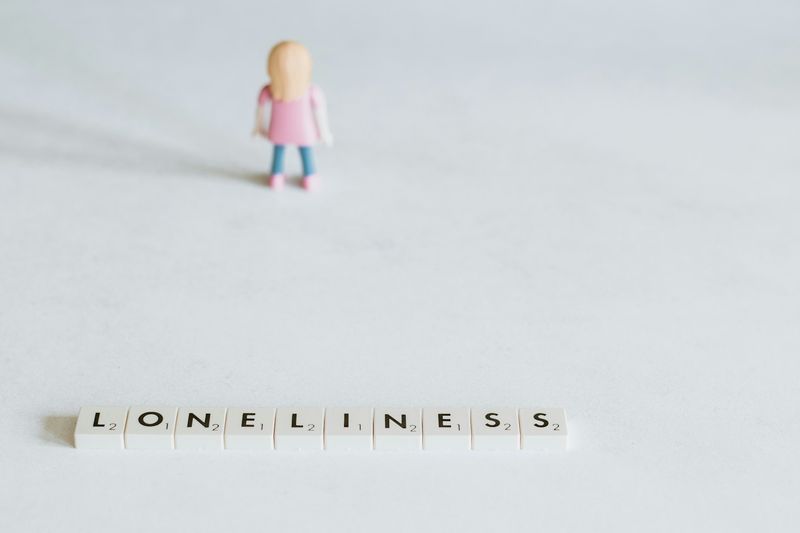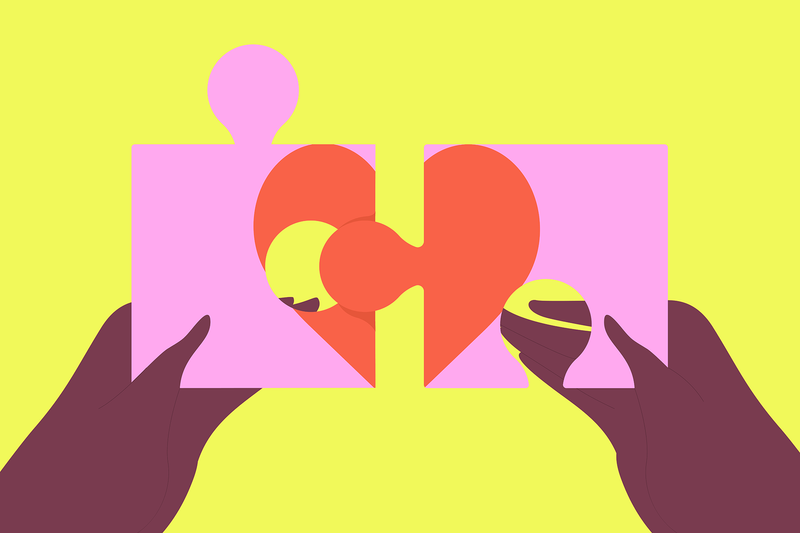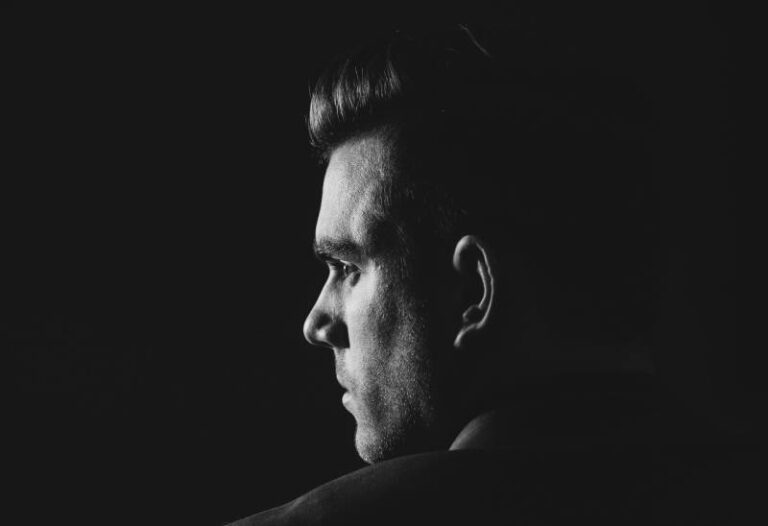16 Signs You’re Carrying All The Emotional Weight In Your Relationship
Ever felt like you’re carrying your relationship in a tote bag that just keeps getting heavier? Not just the logistics—the actual feelings, the moods, the tough talks nobody else wants to start. It’s exhausting, and you don’t get an award at the end.
If you’re starting to wonder if you’re the only one holding things together, you’re not alone.
Here’s the unfiltered truth—no sugar-coating, no pep talk, just real signs you might be carrying all the emotional weight in your relationship. And yeah, it’s okay to name it.
1. You Start Every Difficult Conversation

Ever notice you’re always the one who brings up the hard stuff? That heavy, awkward silence before someone says, “Can we talk?”—yeah, that’s you, again. It’s not because you love drama; it’s because you care enough to want real connection, even when it’s uncomfortable.
You feel the tension in the air, sense something’s off, and you can’t just let it slide. So you take a deep breath and go there, hoping this time it’ll actually change something. Meanwhile, your partner seems content to coast, never starting the hard talks.
You wonder if maybe you’re just “too sensitive” or asking for too much. But here’s the truth: relationships need maintenance, and you’re the only one grabbing the toolbox. Over time, that gets lonely. If you’re tired of being the emotional initiator, you’re not imagining things—the balance is off.
2. You’re the Mood Thermostat

You ever feel like you’re constantly scanning the room, checking your partner’s temperature before you say a word? It’s like you’re the unofficial mood manager—tiptoeing, smoothing over awkwardness, and making sure everyone’s okay.
You edit your words, change your plans, sometimes even swallow your own feelings just to keep things calm. Their happiness feels like your responsibility, and you notice when it dips before they even say a word. Little things, like canceled plans or an offhand comment, set you on edge—because you know you’ll have to fix it.
This is more than paying attention. It’s emotional overfunctioning, and it’s exhausting. Before you know it, you can’t tell where their feelings end and yours begin. That’s not “caring deeply”—that’s carrying too much.
3. You Remember All The Dates (And They Forget)

Every anniversary, birthday, or milestone—guess who remembers? You. You buy the card, plan the dinner, try not to ask for too much in return. Meanwhile, your partner wakes up on your birthday like it’s any other Tuesday.
You don’t keep score because you’re petty. You do it because these moments matter to you. When you remind them, it’s not about the gift; it’s about being seen. One-sided memory is a quiet heartbreak. It’s not that they’re forgetful; it’s that they assume you’ll always pick up the slack.
After a while, you start lowering your expectations, telling yourself it’s not a big deal. But it is. Remembering isn’t about flowers or chocolates—it’s about showing up for each other. And you’re tired of being the only one who does.
4. You Explain Their Feelings To Others

At family dinners or parties, ever find yourself stepping in to explain why your partner is quiet, snappy, or just checked out? You smooth over awkwardness, give excuses, make them sound better than they’re acting. Basically, you’re their PR manager.
It’s not just about saving face. You want people to understand them, to see the good you see, even when your partner isn’t making it easy. You translate their moods, soften their edges, and hope no one notices how hard you’re working.
After a while, it starts to feel like you’re parenting instead of partnering. Instead of sharing the load, you’re covering for them. It’s exhausting and unfair—but most of all, it keeps you from being fully present too.
5. You Apologize For Things That Aren’t Yours

You find yourself saying “sorry” for stuff you didn’t do. Your partner snaps at a friend, and you patch it up with an apology. Someone gets their feelings hurt, and you smooth it over—even when it wasn’t your job.
It’s like you’re always cleaning up emotional messes that aren’t yours. You feel responsible for the vibe in every room you walk into with your partner. You say sorry so much it loses its meaning, but you keep doing it because it keeps the peace—for everyone but you.
Apologizing isn’t weakness. It’s what you do to survive. But if you’re fixing what you didn’t break, you’re carrying more than your share. That weight doesn’t disappear, it piles up—on you.
6. You Edit Yourself To Avoid Conflict

You know that feeling in your gut, the one that warns you not to say too much? You swallow your opinions, bite your tongue, and let little things slide—not out of kindness, but self-preservation. You’re not afraid of your partner, but you dread the fallout.
You become a master of self-editing, trimming away everything that might spark an argument. You start to forget what your real voice sounds like. The silence feels safer than honesty, but it eats at you, slow and steady.
Peace at any price isn’t peace. It’s just quiet. Editing yourself is a sign you’re carrying the responsibility for both people’s comfort, and it’s a lonely job.
7. You’re The One Who Plans Everything

Vacations, date nights, grocery runs—you’re the one with the plan. You organize, schedule, book, and confirm. If you stopped, would anything even happen?
Sometimes you wish just once your partner would send a text that says, “I’ve got this—just show up.” You long for a surprise, a gesture, a sense that they’re invested too. Instead, the mental load grows and grows, and you become the unofficial project manager of your own relationship.
It’s not about being controlling—it’s about survival. When everything falls on you, you do it because you care. But there’s a difference between being dependable and being taken for granted.
8. You Absorb All The Stress

You’re the one who stays up late, worrying about bills, work stress, and your partner’s never-ending problems. Even when it’s not your mess, you feel it like it’s your own. Their stress seeps into you, and suddenly you’re carrying both loads.
You listen, you problem-solve, you try to fix what you can—even when nobody asked you to. You can’t relax until you know they’re okay. But no one checks if you’re okay.
Your care is a gift, but when it gets heavy, it starts to feel less like love and more like a burden. You deserve someone who checks on you too, not just someone who lets you soak up all the worry.
9. You’re Always The Emotional First Responder

When something goes wrong, you’re the first on the scene. Tears, frustration, existential crisis—you’re there with tissues, advice, and the right words. You never think twice about being the support system, because you’ve always been that person.
But when you need comfort, you either get silence or an awkward pat on the back. The imbalance stings, especially as you realize you don’t get the emotional rescue you give so freely. It’s like you’re the designated lifeguard, but no one’s watching if you go under.
Being emotionally available is beautiful, but it’s not a one-way street. You can’t be everyone’s first responder forever without burning out.
10. You Downplay Your Own Problems

You tell your partner about your bad day, but when their eyes glaze over or the phone comes out, you switch gears. Suddenly, you claim, “It’s not a big deal.” You minimize your pain so no one else has to feel uncomfortable.
It feels easier to stay upbeat, to focus on their day instead. Your needs shrink in the conversation, not because they don’t exist—but because you’re used to making space for their feelings, not yours.
After a while, you forget how to ask for real comfort. You start believing your problems don’t matter. That’s not humility—that’s carrying emotional weight that should be shared.
11. You’re Left Feeling Unappreciated

You do the little things—make coffee, handle errands, remember the things that keep life running. No one says thank you. Your partner acts like it’s just expected, and you wonder when appreciation turned invisible.
It’s not about wanting a parade. You just want to feel noticed. Effort without acknowledgment is a slow erosion—one that leaves you feeling hollow.
You start to question: If you stopped doing all these things, would anyone care? Being unappreciated isn’t just sad; it’s a warning sign the emotional scales are tipped. You deserve to matter too.
12. You Reassure Yourself With Excuses For Them

You tell yourself, “They’re stressed,” “They didn’t mean it,” or “Maybe they’re just not good with feelings.” These stories become your safety net. You use them to explain why your needs go unmet, why you’re still waiting for them to show up.
You don’t want to be the angry partner. You want to believe it’ll get better. So you rationalize and justify, piling up excuses until you almost believe them yourself.
This isn’t optimism—it’s self-protection. At some point, the excuses stop helping and start hiding the truth. The relationship is uneven, and pretending otherwise just adds weight to your shoulders.
13. You’re Afraid To Rock The Boat

You want to bring up what’s bothering you, but you stop yourself. You worry about starting a fight, ruining the mood, or being “too much.” The fear of making waves keeps you standing in the hallway, thoughts spinning.
You’ve learned that peace only lasts if you swallow your feelings. So you hold it all in, waiting for a better time that never comes. The boat stays steady, but you’re seasick inside.
This isn’t compromise—it’s self-abandonment. A relationship where you’re scared to be real isn’t as safe as it looks from the outside.
14. You Handle All The Repair Work

Arguments happen, but you’re the one who patches things up. You send the first text, apologize (even if you weren’t wrong), and brainstorm ways to fix it. Mending becomes your second job.
Your partner sits back, letting you do the emotional heavy lifting. They know you’ll bridge the gap, so they never have to reach out first. The relief never lasts, because you know it’ll be you again next time.
Repair shouldn’t be a solo mission. When only one person does the work, the cracks keep growing—right where you’re holding it all together.
15. You’re The Emotional Historian

You remember every detail: the song from your first date, the way their eyes looked after good news, the text that changed everything. You collect the memories, save the notes, and keep the history alive.
Meanwhile, your partner forgets what matters, forgetting even the stories that shaped you both. You become the keeper of everything meaningful, trying to hold it all together.
Being the emotional historian means you’re the only one fighting to preserve what you’ve built. It’s a beautiful role, but it shouldn’t be lonely. Shared history shouldn’t be a one-person job.
16. You Carry The Hope For Both Of You

You’re the one dreaming about the future, imagining things getting better, holding on when things feel stuck. You pour hope into the relationship like water on dry soil, willing it to grow.
Your partner seems content with the status quo, rarely talking about hopes, goals, or how to make things better. You try to inspire change, but the effort feels one-sided. Hope gets heavy when you’re the only one carrying it.
You deserve to have someone hope with you—not just for you. When you’re both invested, the future doesn’t feel so far away.







